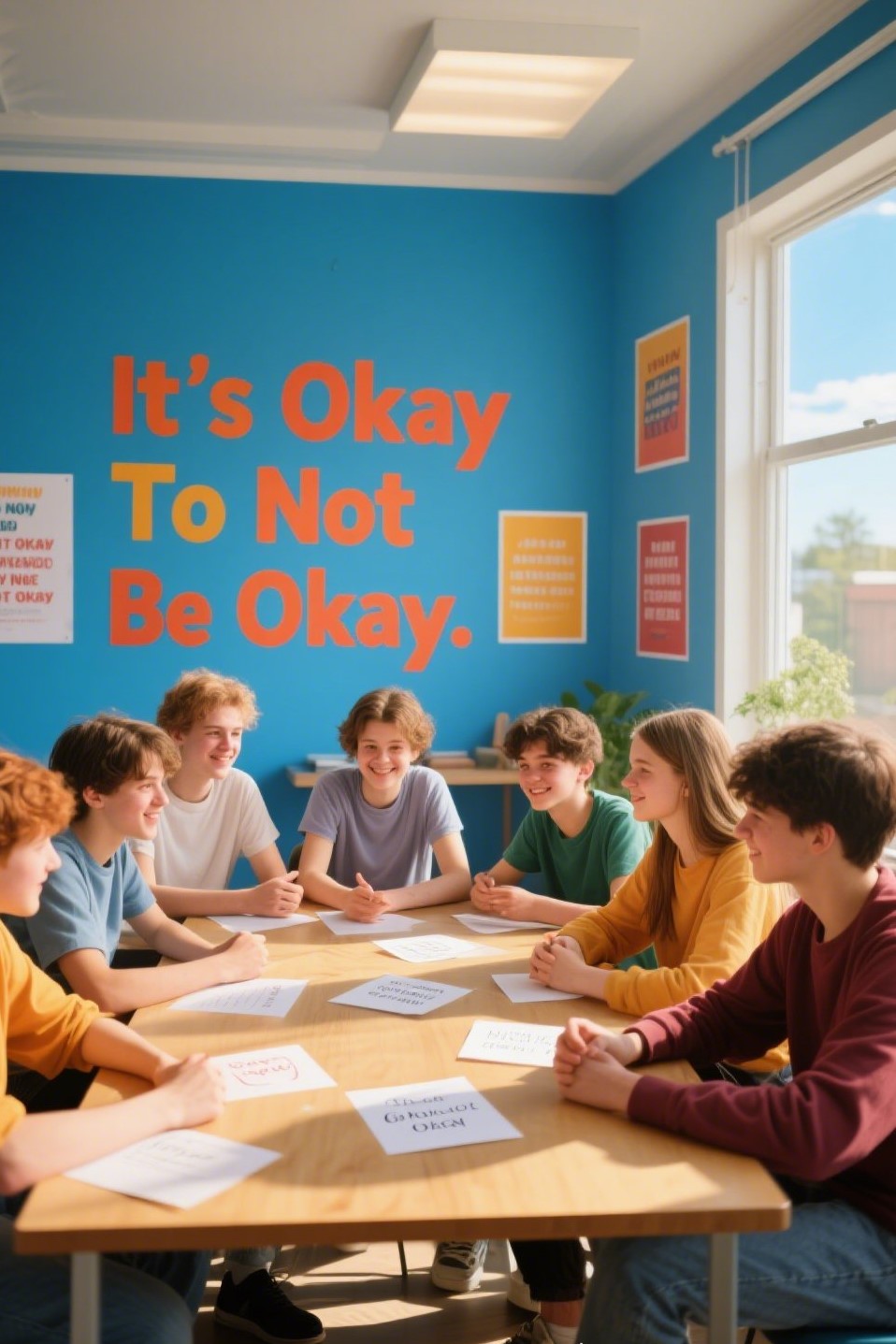Let’s be honest—talking to teenagers about anything can be a bit of a balancing act. They’re not little kids anymore, but they’re also not fully grown adults. They’re curious, emotional, independent, and constantly evolving. So, how do you talk to them about something as personal and complex as mental health?
The answer? With honesty, simplicity, and compassion. Mental health isn’t a lecture topic—it’s a life topic. And the more relatable and real the conversation is, the more likely it is to stick.
Here’s how you can start the talk—and make it meaningful.
🧠 1. Start with the Basics: Define Mental Health Like It’s Normal (Because It Is)

Start by saying something like:
“Mental health is about how we think, feel, and act. Just like physical health is about our body, mental health is about our mind and emotions.”
Make it clear that everyone has mental health, just like everyone has a heart or a brain. It’s not only about illness—it’s about well-being, managing stress, understanding emotions, and making healthy choices.
Let them know it’s okay to feel down, anxious, or overwhelmed sometimes. That’s part of being human.
❤️ 2. Normalize the Conversation: No Shame, No Stigma

Teenagers are wired to care a lot about what others think. So one of the most powerful things you can do is to take the shame out of the conversation.
Say things like:
“You don’t have to be ‘crazy’ or ‘broken’ to need help. Needing help doesn’t make you weak—it makes you wise.”
The goal is to help them feel safe being honest, not afraid of being judged. Let them know that talking about mental health is just as important—and as normal—as talking about sleep, nutrition, or exercise.
💬 3. Use Real-Life Examples or Stories

Mental health can feel abstract to teens—so bring it to life. Use simple metaphors like:
“When your phone gets too many apps open, it slows down. Our brain works the same way—it needs rest and support, too.”
Or:
“Have you ever had a stomachache when you were nervous before a test? That’s your mind affecting your body. Mental health and physical health are deeply connected.”
You can also talk about celebrities or public figures who’ve opened up about their struggles. This helps make the topic feel real—and relatable.
👂 4. Listen More Than You Talk

If you want teens to really open up, you have to create a space that feels safe, not preachy. Ask questions like:
“How are you feeling lately—really?”
“What do you usually do when you’re stressed or upset?”
“Is there anything on your mind you don’t know how to talk about?”
Then listen—without jumping in with advice right away. Sometimes, just being heard is the start of healing.
🧩 5. Give Them Tools, Not Just Talk

It’s not enough to just say “mental health matters.” Give them tools they can actually use:
- Journaling – a space to unload thoughts
- Breathing exercises – for managing anxiety
- Apps like Calm or Headspace – for guided meditation
- Trusted adults or professionals – so they know who to turn to if things get hard
Let them know it’s okay to ask for help—from you, from a school counselor, or even from a therapist. Therapy isn’t for “crazy people”—it’s like coaching for your mind.
🌱 6. Remind Them That They’re Not Alone

The teen years can feel lonely. Let them know that many others are going through the same things—even if it doesn’t look like it on the outside. Remind them:
“It’s okay to not be okay.”
“You don’t have to figure everything out at once.”
“You are not alone.”
That message might seem simple—but for a teenager, it can be life-changing.
🌈 Final Words: It’s Not Just a Talk—It’s a Lifeline
Talking to a teenager about mental health isn’t a one-time conversation—it’s an open door. Keep it casual. Keep it real. Keep it loving. The more safe they feel with you, the more likely they are to speak up when they need help most.
Because the truth is: teenagers don’t need all the answers.
They just need someone who’s willing to listen—and walk with them.






